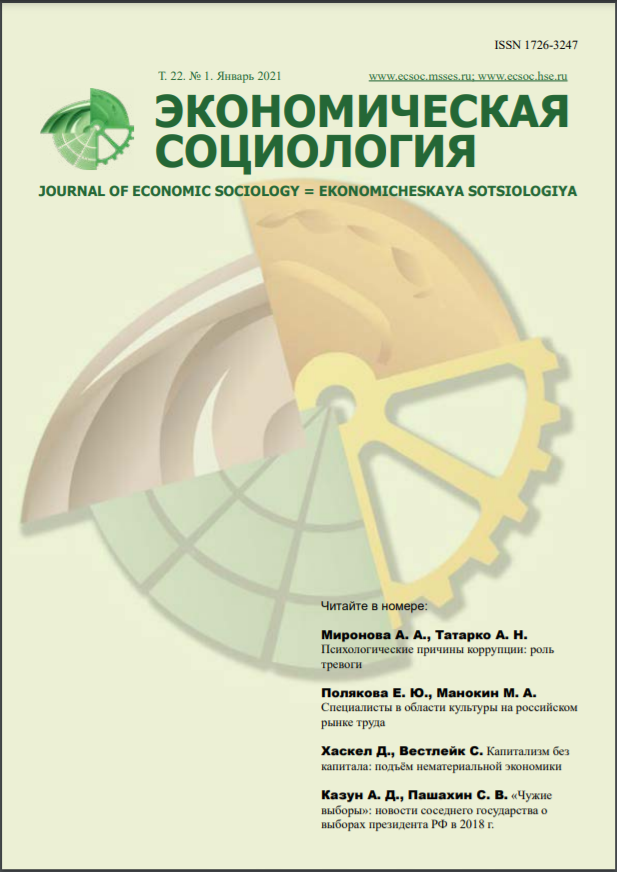Психологические причины коррупции: роль тревоги
Abstract
This study is devoted to answering two questions: (1) Do individuals’ worries and sufferings correlate with the acceptability of corruption from their perspectives? (2) Does this correlation differ by country in terms of corruption levels? We focus on analyzing the correlation between macro and micro worries, on one hand, and individual acceptability of corrupt behavior, on the other hand. This study is based on the data from the 6th-wave World Value Survey. We identified three groups of countries based on the corruption perception index: countries with low-level corruption (Australia, The Netherlands, New Zealand, Singapore, and Sweden), countries with medium-level corruption (Belarus, China, South Korea, Malaysia, and Romania), and countries with high-level corruption (Russia, Brazil, Colombia, Peru, and Thailand). For the purposes of our analysis, we used structural equation modeling. We have found that macro and micro worries are significantly correlated with the acceptability of corruption. Our analysis shows that the more the people worry about themselves or their families, the more they accept corruption. The people who worry about society are more likely to disapprove of corruption. However, the significance of these links varies, depending on the group of countries. For the countries with low-level corruption, the correlation is significant only for the link between micro worries and the acceptability of corruption. The countries with high-level corruption show a significant correlation only for the link between macro worries and the acceptability of corruption. For countries with medium-level corruption and for Russia, the acceptability of corruption is significantly correlated with both micro and macro worries.













